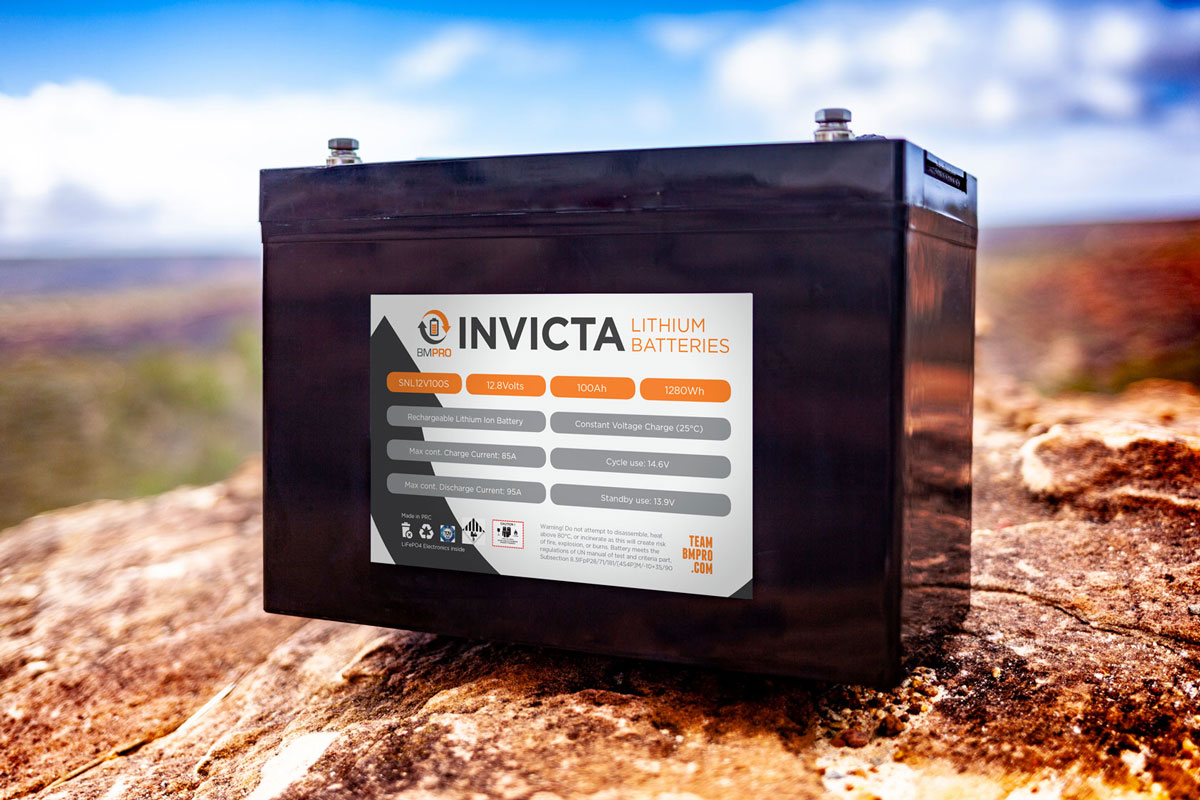Lithium batteries for caravans
Over the past decade, from almost zero commercial profile, lithium batteries (lithium iron phosphate – LiFePO4) have risen to become the highest profile portable electrical storage system in the RV industry, and really only their price point has prevented them from becoming the standard go-to for everyone in the field. It’s a rare brand of caravan, camper or boat which does not offer at least optional lithium battery set-ups in their product range, and for many it’s the only choice.
So what is so attractive about lithium batteries for caravans and why are they set to fulfill their destiny as the prime source of electrical storage over the coming decade?
Lithium batteries present a number of advantages over conventional lead acid formats:
- For a given output they are much lighter (less than half the weight) and often smaller in size, reducing overall payload and increasing storage space within the RV.
- A longer life through a capacity for as many as over 2000 cycles, as much as eight or nine times greater than that of a lead acid storage battery, spreading the initial cost over a much longer period of time.
- They can be safely discharged down to as little as 10 per cent state of charge without any harm to the output or life of the battery itself, and will sustain their voltage right down to that point, enhancing appliance performance.
Conventional lead acid batteries should not be discharged below 50 per cent state of charge (for example, because of this a 200Ah AGM battery only has 100Ah of safe useable capacity, whereas a 200Ah lithium battery has 180Ah of useable capacity; a 80 per cent increase) and their voltage will drop as they lose charge. This latter causes the battery to work harder to meet the demands of the appliance and increase the rate of discharge. - Lithium batteries will sustain a much higher rate of discharge (suited to higher draw appliances, such as microwave ovens) and will fully recharge in as little as one-sixth of the time of an equivalent AGM battery.
- Lithium batteries are ideally suited to use with solar charging systems, and operate at their optimum efficiency when only partially recharged. This suits RVs used off-grid, where weather, shade or other factors can limit the recharge capacity on any given day.
- Lithium batteries have an extremely low self-discharge rate, so they can sit unused for longer periods of time without harm. Also, battery temperature is less critical to performance. With a lead acid battery temperatures above 25 degrees Celsius reduce efficiency of the battery and also shorten its life.
- Without the use of toxic lead in their make up lithium batteries are safer for the environment.
Lithium batteries for caravans – are there any minuses?
Attempts to push lead acid storage batteries outside their safe limited “envelope” not only reduce their immediate capacity but also lead to reductions in the life of the batteries. While there are limits applicable to lithium batteries they are much broader and generally outside those normally experienced by sensible RV use. At present, lithium batteries, like any new technology, are relatively expensive when compared to lead acid storage batteries (around three times the price). This is a situation which the market will correct as the rate of lithium battery production increases and consumer take-up rises with it. The use of lithium batteries for caravans is not simply a matter of buying and bolting in the batteries. Lithium batteries require precise management of the individual cells within the battery and the charging system must be specifically attuned to the requirements of the batteries.BMPRO Invicta Lithium batteries
Leading Australian battery management innovator BMPRO searched the world before settling on the proven Invicta brand of lithium batteries to match to its increasing range of quality RV battery charging and monitoring equipment. BMPRO Invicta batteries are less than 50 per cent the weight of equivalent capacity lead acid batteries, along with up to eight times the cycle life, greater utilisation of available capacity through increased Depth of Discharge (DoD) and fast charging. Currently, the 100Ah and 125Ah Invicta options are available for the Australian market. All BMPRO Invicta batteries are fitted with their own internal Power Management System to protect them from short circuit, impact, thermal abuse, over-charge, over-discharge and internal short circuit problems. Each battery is certified as a complete battery, not just at cell level like some others. This means that each complete pack of cells and its Power Management System are tested and certified as a complete unit.Future of lithium batteries for caravans
“In our view within the next 10 years the majority of new battery set-ups will be lithium based,” said BMPRO brand ambassador David Bayliss. “This is starting to happen already. Many car manufacturers are already stating that they will no longer be supplying lead acid batteries in their motor vehicles. This market is largely driven by the automotive industry and when vehicle makers such as VW, Porsche, Volvo and BMW have confirmed they will be phasing out lead acid batteries as they move to electric only vehicles, and when we have reached that stage the price will be driven down, making them more affordable all round for the RV sector.” “On a price per kilowatt basis lithium batteries already smash lead acid batteries,” Bayliss continued. “The problem has largely been one of convincing the marketplace that an investment in lithium batteries is a saving in the long run. And this just isn’t a win-win for the consumer in terms of the efficiency of battery storage, getting rid of lead is also a win-win for the environment all round.” Watch a series of videos dedicated to lithium batteries for caravans to learn more.Like this Post? Share it!






